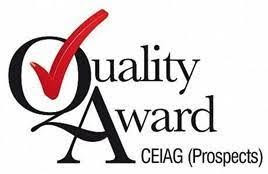Environmental Science A Level
What Does the Course Involve?
A holistic subject with many interconnected systems and processes.
A change in one area can affect many other processes over different spatial and temporal scales.
You’ll develop an understanding of how human society relies upon natural systems for resources and as a life support system. You’ll also consider how changes in society can produce sustainable lifestyles.
Environmental A Level Course Outline
1. The living environment
- Conditions for life on earth
- Conservation of biodiversity
- Life processes in the biosphere and conservation planning
2. The physical environment
- The atmosphere
- The hydrosphere
- Mineral resources
- Biogeochemical cycles
- Soils
3. Energy resources
- The importance of energy supplies in the development of society
- The impact of the features of energy resources and their use
- The sustainability of current energy resource exploitation
- Strategies to secure future energy supplies
4. Pollution
- The properties of pollutants
- How environmental features affect the severity of pollution
- Strategies to control pollutants based on their properties and features of the environment
5. Biological resources
- Agriculture
- Aquatic food production systems
- Forest resources
6. Sustainability
- Dynamic equilibria
- Energy
- Mineral cycles
- Circular economy
7. Research method
How is Environmental Science A Level Assessed?
Students must complete 4 days of fieldwork.
A minimum of five GCSEs at grade 4 and above, with at least two at grade 6, including Maths, English, another essay based subject, and Double Science.
Potential careers are many and varied, and include: Environmental consultant, Environmental engineer, Environmental manager, Marine biologist, Nature conservation officer, Recycling officer, Sustainability consultant, Waste management officer, Water quality scientist, Landscape architect, Town planner, Toxicologist or Transport planner.
Cadbury Sixth Form College has an excellent reputation for being one of the very best sixth form colleges in Birmingham, offering an innovative learning experience.
Frequently Asked Questions
How does the college allocate places to students?
All applicants will be invited to attend an admissions interview. An offer of a place to study at Cadbury Sixth Form College is made subject to you meeting the College's standard entry grade requirements.How much does it cost to study at Cadbury Sixth Form College?
There are no tuition fees for 16-18 year-olds. Students are asked to pay a £25 book deposit when they enrol at the college, however this is returned at the end of the two years of study when all books and resources have been returned to the college. Some subjects will offer field trips which may impose some additional costs, however these costs will be kept to a minimum and these field trips are not compulsory.When does enrolment take place?
Enrolment takes place from GCSE Results Day. Further details about enrolment and a date/time for your individual appointment will be sent to you in a letter over the summer holiday. Enrolment takes on average 1-2 hours.© Copyright Cadbury Sixth Form College 1984 - 2025 | All Rights Reserved












